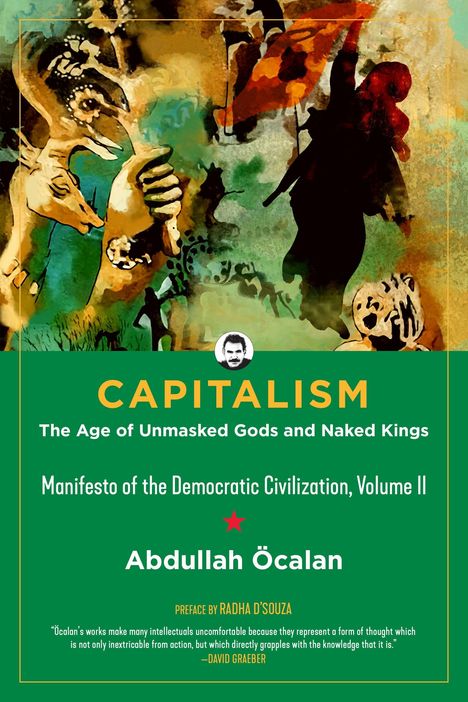Abdullah Öcalan: Capitalism, Kartoniert / Broschiert
Capitalism
Buch
- The Age of Unmasked Gods and Naked Kings (Manifesto of the Democratic Civilization, Volume II)
Artikel noch nicht erschienen, voraussichtlicher Liefertermin ist der 31.3.2026.
Sie können den Titel schon jetzt bestellen. Versand an Sie erfolgt gleich nach Verfügbarkeit.
Sie können den Titel schon jetzt bestellen. Versand an Sie erfolgt gleich nach Verfügbarkeit.
Aktueller Preis: EUR 25,43
Versandkosten
(United States of America): EUR 19,90
- Übersetzung:
- Havin Guneser
- Verlag:
- PM Press, 03/2026
- Einband:
- Kartoniert / Broschiert
- Sprache:
- Englisch
- ISBN-13:
- 9781629637877
- Artikelnummer:
- 10309517
- Umfang:
- 384 Seiten
- Nummer der Auflage:
- 26002
- Ausgabe:
- 2nd edition
- Erscheinungstermin:
- 31.3.2026
- Hinweis
-
Achtung: Artikel ist nicht in deutscher Sprache!
Weitere Ausgaben von Capitalism |
Preis |
|---|---|
| Buch, Gebunden, Englisch | EUR 54,83* |
Klappentext
The second volume of Abdullah Ocalan''s definitive five-volume work The Manifesto of the Democratic Civilisation.

Abdullah Öcalan
Capitalism
Aktueller Preis: EUR 25,43
